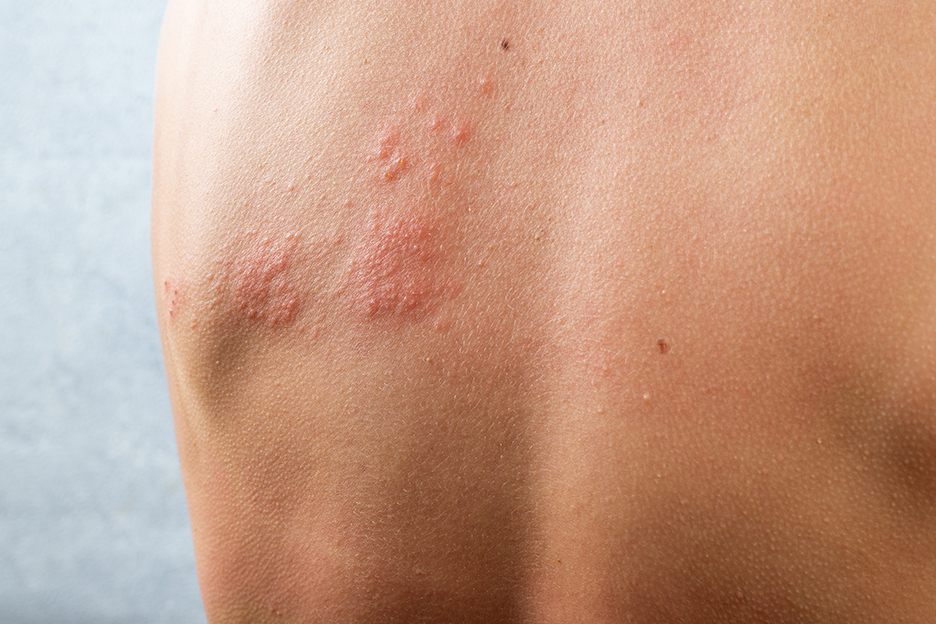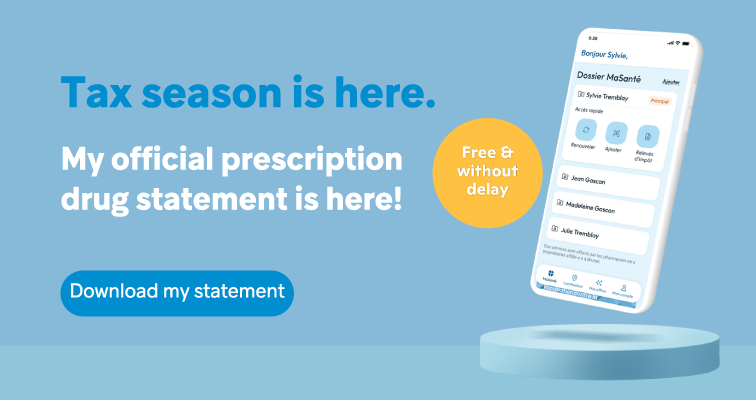Did you know that people who have had chickenpox as children are at risk of getting shingles later in life? Learn how you can recognize shingles, and what you can do to prevent complications.

WHAT IS SHINGLES?
Many people believe that shingles is a type of chickenpox, but that’s not exactly the case. Both diseases are caused by the same virus, but they don’t manifest themselves in the same way. Chickenpox is a childhood disease, while shingles mostly affects adults and the elderly.
After a bout of chickenpox, the virus remains dormant (i.e. without causing symptoms) in the body for several years. The virus can reactivate during the person’s lifetime and cause shingles. Approximately one person out of five who have had chickenpox will suffer from shingles during his or her life. It is important to remember that a person cannot get shingles if he or she has never been infected by the chickenpox virus.
But why does the chickenpox virus reactivate? It can do so for no apparent reason, but there are some conditions that increase the risk of reactivation, such as:
- advanced age (over 50 years old) and those over 18 who are immunocompromised;
- cancer;
- diabetes;
- taking certain medications that weaken the immune system.
HOW DOES IT MANIFEST ITSELF?
When the virus is reactivated, it manifests only in one specific area of skin, and on only one side of the body. The first symptom is a burning or tingling sensation in the affected area. One to three days later, spots and small fluid-filled blisters appear in clusters and cause itchiness. The blisters eventually dry up and disappear after two or three weeks. Unfortunately, it is possible for the pain to persist even after the lesions have healed. This is known as postherpetic neuralgia. The pain is constant and characterized by a burning sensation or a feeling like electrical shock in the area affected by shingles; it can last for several months and even for the rest of the patient’s life. That type of pain has many consequences on the person’s quality of life:
- fatigue;
- insomnia;
- depression or anxiety;
- loss of appetite;
- weight loss.
Early detection and treatment of shingles can reduce the risk of complications. It is therefore imperative to know how to recognize its symptoms and to see a doctor right away if you think you may be suffering from shingles.
PREVENTION AND TREATMENT
The best way to prevent shingles is to strengthen the immune system by eating healthy, exercising and resting. In addition, a shingles vaccine is now available in Canada.
Only the fluid-filled blisters are contagious. In other words, when the lesions are crusted over, there is no risk of spreading the disease. If you have never had chickenpox and touch a patient’s blisters, you may contract the virus. Washing hands is therefore essential to prevent transmission. Pregnant women who have never had chickenpox should avoid all contact with anyone infected with the virus (either shingles or chickenpox) because it could put the baby at risk.
Treatment must begin as soon as possible, ideally within three days of noticing lesions, to have its optimal effect. You must absolutely see a doctor when the first symptoms appear. The doctor will prescribe an antiviral drug, which is medication that attacks the virus. In addition, if you are in pain, it is possible to take painkillers with the antiviral. Ask your pharmacist to advise you and to recommend the appropriate treatment for your condition. There are also a few non-medicinal measures you can take to reduce symptoms and prevent complications:
- Apply cold compresses on the lesions.
- Gently clean lesions and keep them dry.
- Don’t scratch or pop blisters.
- Wear loose clothing to reduce friction on the lesions.
- Rest.
Shingles are a common disease associated with aging. If you are presenting symptoms that could be shingles, don’t hesitate to consult your pharmacist. He or she will provide you with advice and may suggest you see a doctor without delay, if needed. The quicker the treatment, the better your quality of life.
For Quebec patients: Starting May 2023, the shingles vaccine will be free of charge to some individuals.
Book an appointment to receive this vaccine directly at the pharmacy.
